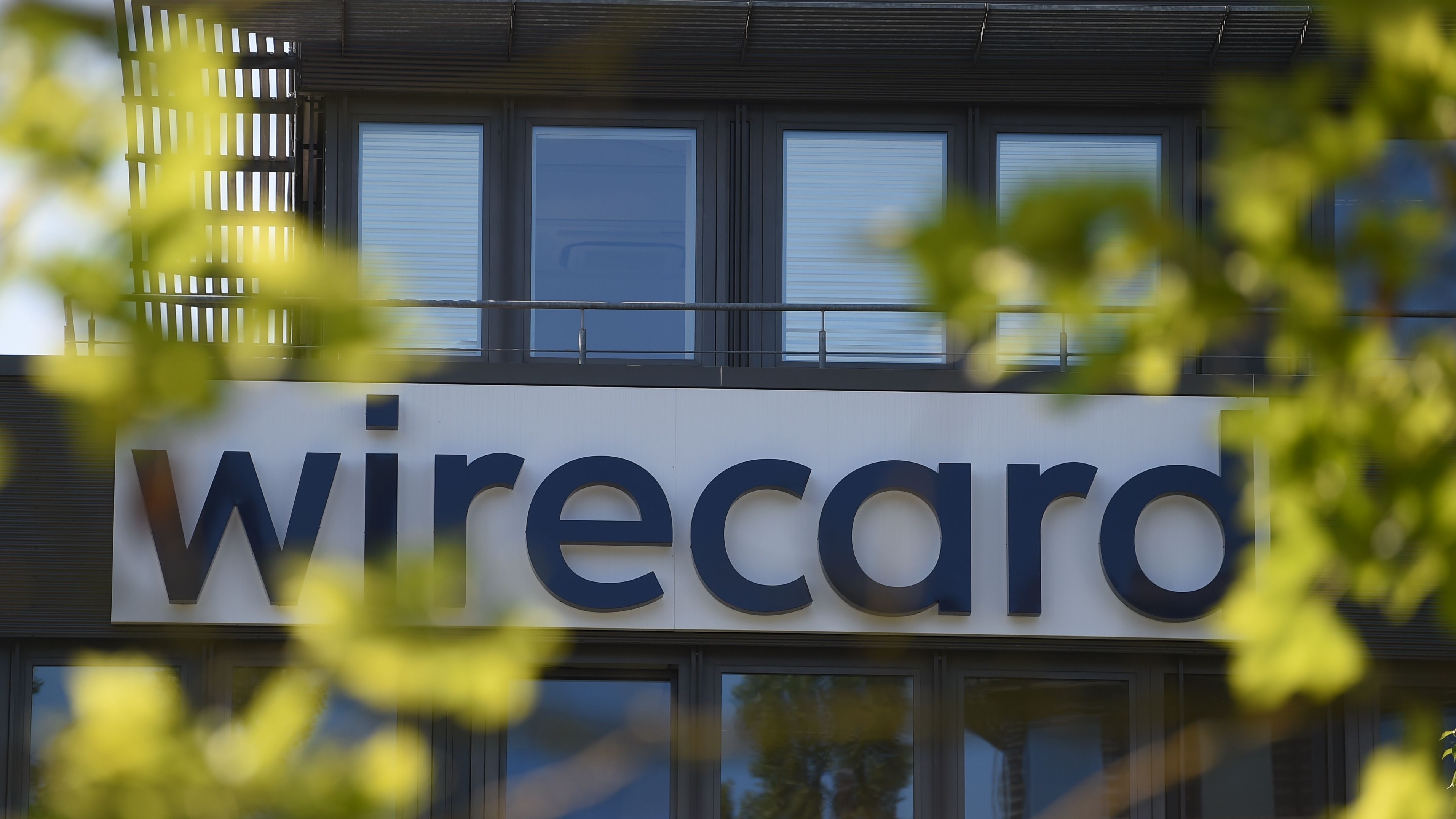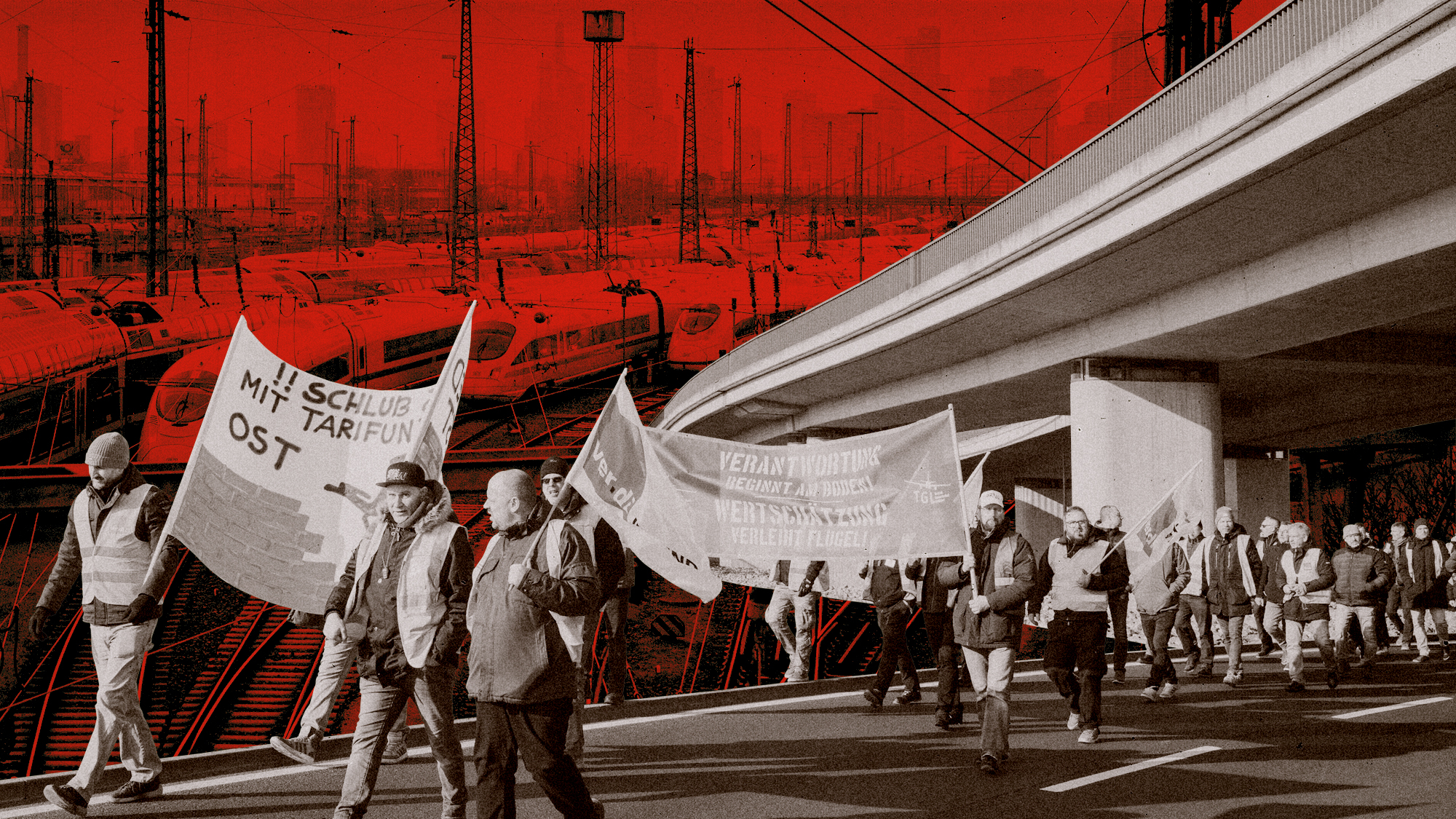What is Wirecard and why has the scandal-hit firm collapsed?
Payment processing giant becomes first Dax-listed company to fail amid €1.9bn accounting scandal

A free daily email with the biggest news stories of the day – and the best features from TheWeek.com
You are now subscribed
Your newsletter sign-up was successful
Payments firm Wirecard has filed for insolvency days after disclosing a €1.9bn (£1.7bn) hole in its accounts.
The German company’s former boss Markus Braun has since been arrested and “accused of inflating Wirecard’s finances to make them appear healthier to investors and customers”, the BBC reports.
So what is Wirecard - and what went wrong?
The Week
Escape your echo chamber. Get the facts behind the news, plus analysis from multiple perspectives.

Sign up for The Week's Free Newsletters
From our morning news briefing to a weekly Good News Newsletter, get the best of The Week delivered directly to your inbox.
From our morning news briefing to a weekly Good News Newsletter, get the best of The Week delivered directly to your inbox.
The growth years
Wirecard was “founded in a Munich suburb” in 1999 and “backed by venture capital in the late stages of the dotcom boom”, the Financial Times says. The company is a payment processor, meaning it helps sites collect credit card payments from customers.
According to the newspaper, former KPMG consultant Braun took over as chief executive in 2002 after the company almost went bust, and then led a merger with a rival firm. Three years later, Wirecard joined the Frankfurt stock market, known as the Dax.
By 2006, the company had 323 employees, with most of its business revolving around “managing payments for online gambling and pornography”, says the FT.
A free daily email with the biggest news stories of the day – and the best features from TheWeek.com
Over the next decade, the company went on a “shopping spree”, buying payment companies in Asia in a series of “oddly structured deals”.
By 2018, the company was recording revenues of over €2bn (£1.82bn), “more than four times the figure from 2013”, according to CNN. But then things began to go wrong.
Success turns sour
In 2015, the FT began publishing a series of stories about Wirecard that raised “questions about inconsistencies in the group’s accounts”. The paper went on to report that there appeared to be “a €250m hole in the group’s balance sheet”, prompting legal threats from the company.
But the FT was right about the company’s accounting.
Last week, auditors EY refused to sign off on the company’s accounts after being unable to locate a missing €1.9bn (£1.7bn). Initially, the firm claimed the cash was held in two banks in the Philippines, but on Monday admitted that “the money may simply not exist”, the BBC says.
Wirecard has filed for insolvency citing “over-indebtedness” and Braun, who resigned last Friday, has been arrested on suspicion of inflating the company’s finances.
–––––––––––––––––––––––––––––––For a round-up of the most important stories from around the world - and a concise, refreshing and balanced take on the week’s news agenda - try The Week magazine. Start your trial subscription today –––––––––––––––––––––––––––––––
What happens next?
Braun has been freed on bail of €5m (£4.5m) and remains a suspect in what German tabloid Bild has labelled “one of the biggest accounting fraud scandals in Germany’s economic history”.
The Munich Public Prosecutor’s Office has expanded its investigation to look at other Wirecard bosses, including ex-chief operating officer Jan Marsalek, who was fired at the start of this week.
The collapse is also “raising questions over how the company’s regulators and auditors could have missed accounting irregularities that are already drawing comparisons to Enron”, the US energy giant that collapsed in 2001, CNN says.
-
 How the FCC’s ‘equal time’ rule works
How the FCC’s ‘equal time’ rule worksIn the Spotlight The law is at the heart of the Colbert-CBS conflict
-
 What is the endgame in the DHS shutdown?
What is the endgame in the DHS shutdown?Today’s Big Question Democrats want to rein in ICE’s immigration crackdown
-
 ‘Poor time management isn’t just an inconvenience’
‘Poor time management isn’t just an inconvenience’Instant Opinion Opinion, comment and editorials of the day
-
 Christmas trees: losing their magic?
Christmas trees: losing their magic?In the Spotlight Festive firs are a yuletide staple but are their days numbered?
-
 Volkswagen on the ropes: a crisis of its own making
Volkswagen on the ropes: a crisis of its own makingTalking Point The EV revolution has 'left VW in the proverbial dust'
-
 Germany's transportation industry grinds to a halt as workers strike
Germany's transportation industry grinds to a halt as workers strikeThe Explainer The country's railways and airports are both at a standstill as union members walk off the job
-
 Germany launches the world's first hydrogen-powered trains
Germany launches the world's first hydrogen-powered trainsSpeed Read
-
 Labour shortages: the ‘most urgent problem’ facing the UK economy right now
Labour shortages: the ‘most urgent problem’ facing the UK economy right nowSpeed Read Britain is currently in the grip of an ‘employment crisis’
-
 Will the energy war hurt Europe more than Russia?
Will the energy war hurt Europe more than Russia?Speed Read European Commission proposes a total ban on Russian oil
-
 Will Elon Musk manage to take over Twitter?
Will Elon Musk manage to take over Twitter?Speed Read The world’s richest man has launched a hostile takeover bid worth $43bn
-
 Germany takes over Russia's Gazprom subsidiary after apparent attempt to transfer assets to a Moscow DJ
Germany takes over Russia's Gazprom subsidiary after apparent attempt to transfer assets to a Moscow DJSpeed Read